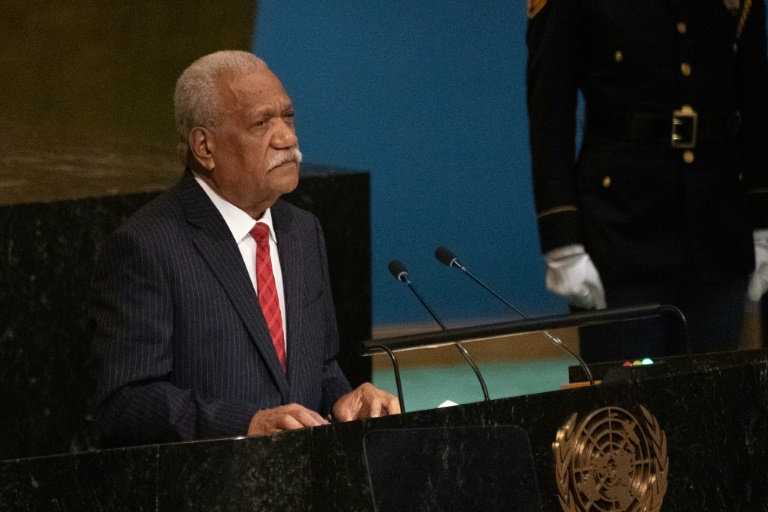In his address to the United Nations General Assembly, President Nikenike Vurobaravu evoked the existential crisis caused by rapid global heating, from hurricanes and coral bleaching to wildfires, prolonged droughts and flooding
Vanuatu on Friday became the first nation to launch a diplomatic push for a fossil fuel non-proliferation treaty, a proposed legal path to phase out coal, oil and gas globally by likening their threat to nuclear weapons.
In his address to the United Nations General Assembly, President Nikenike Vurobaravu evoked the existential crisis caused by rapid global heating, from hurricanes and coral bleaching to wildfires, prolonged droughts and flooding.
“We call for the development of a Fossil Fuel Non-Proliferation Treaty to phase down coal, oil and gas production in line with 1.5C, and enable a global just transition for every worker, community and nation with fossil fuel dependence,” he said.
The Paris climate accord called on nations to aspire to limit warming to 1.5 degrees Celsius above pre-industrial levels, a goal that is far off track.
Vanuatu, an archipelago home to 300,000 people that lies 1,000 miles (1,600 kilometers) to the east of Australia, adds its voice to a call that has been endorsed by more than 65 cities and regional governments around the globe.
These include London, Lima, Los Angeles, Kolkata, Paris and Hawaii. The proposal has also been backed by the Vatican and the World Health Organization.
Tiny Vanuatu this month submitted one of the world’s most comprehensive climate targets under the UN, and has been leading a campaign to have the International Court of Justice issue an opinion on climate justice and human rights.
In a statement, the climate campaign group 350 compared the proposed treaty to accords that were pivotal in managing the threats of nuclear weapons and landmines.









